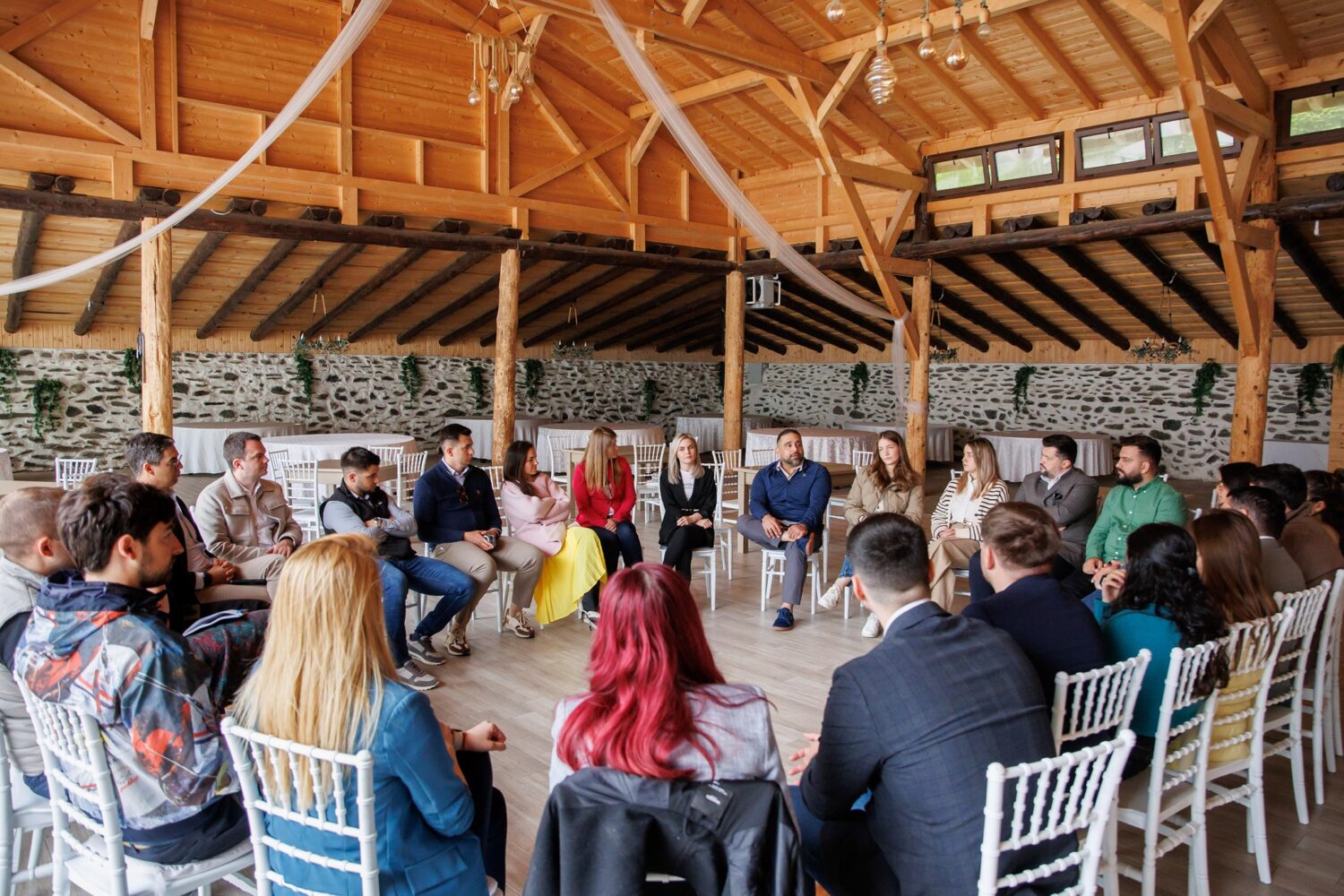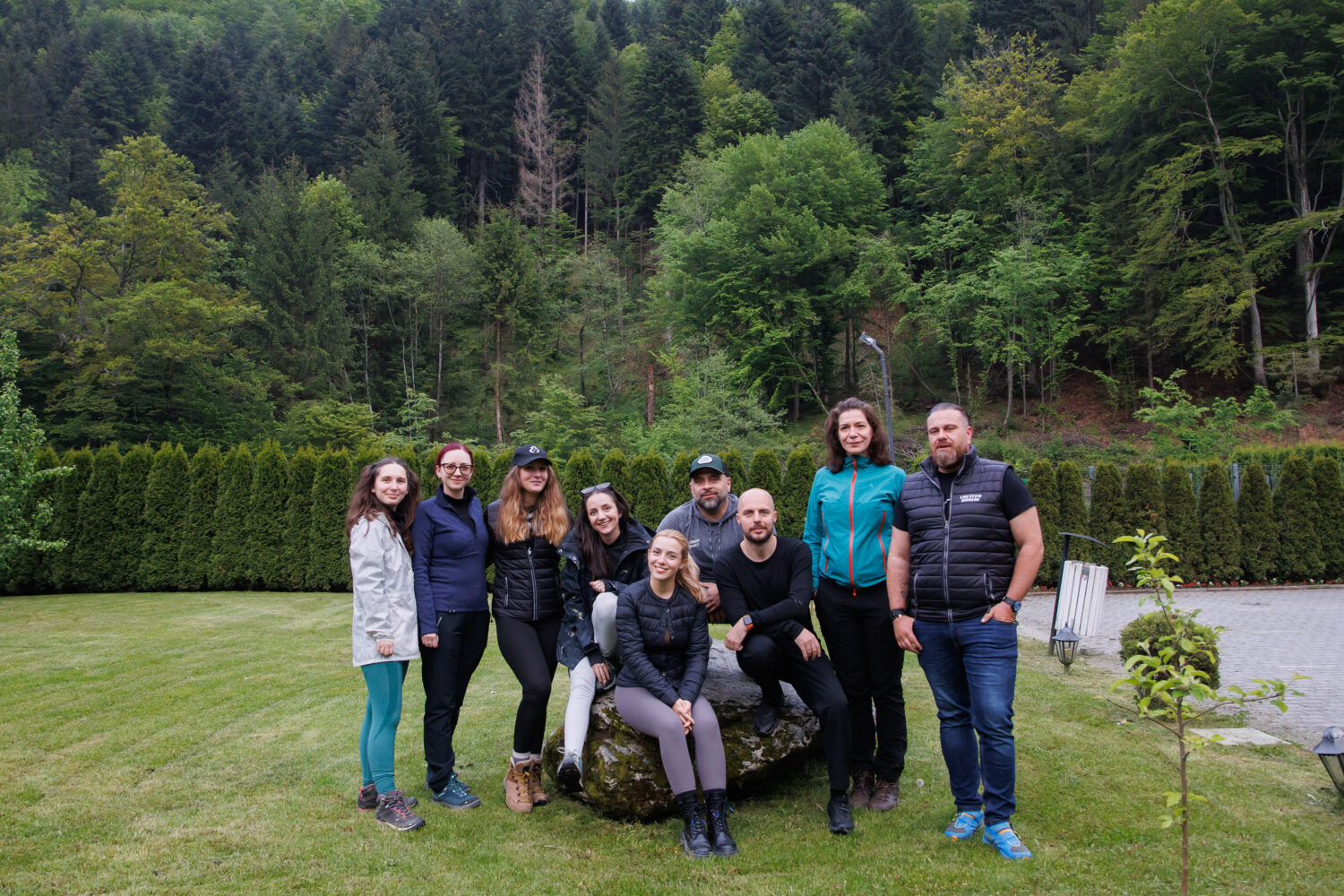Reflections on a Transatlantic Journey of Youth Leadership, Dialogue, Shared Destiny, and the Importance of Not Forgetting
Joel Miranda, Senior Manager for Opportunity Youth Leadership & Partnership, Global Opportunity Youth Network
An Invitation to Exchange and Learn
In May of 2025, I was honored to be selected for the Aspen International Partners Collaboration Exchange opportunity with Aspen Institute Romania for Module 1 of their Young Leaders Fellowship. As the Senior Program Manager for Opportunity Youth Leadership and Partnership at the Global Opportunity Youth Network (GOYN), I work with a team that supports our partners in developing authentic, trust-based partnerships with young people and investing in youth leadership. I was deeply interested in learning how other Aspen Institutes approach youth leadership development—and what lessons, frameworks, and practices might expand and enrich our work across global contexts.
A Seminar Rooted in History, Humanity, and Hard Questions
The readings selected for the retreat were masterfully curated—texts like Plato’s The Republic, Jean-Jacques Rousseau’s The Social Contract, Costica Brădățan’s Democracy Is for the Gods, Paul Rusesabagina’s An Ordinary Man: An Autobiography, a reflection on making moral decisions during the Rwandan genocide, and Dr. Martin Luther King Jr.’s Letter from a Birmingham Jail. These were just a few among many insightful, stimulating, and powerful readings—spanning the timeless questions humanity has asked itself since the dawn of civilization, to the urgent questions we must confront today in order to build a more inclusive and just future. Some readings also pushed us to imagine the role of technology in that future—challenging us to envision how artificial intelligence can be pro-human, pro-democracy, and pro-justice, rather than feared as a force that might displace or replace the beautiful, complex, and dynamic reality of human experience.
Romania’s History, Our Shared Struggles
As a multiracial Latino, son of Latin American immigrants in the United States, experiencing the “othering” that many groups of color face, I’ve long understood the significance of Dr. King’s writings in the context of American history and the ongoing struggle for civil rights. But I was deeply moved to see these same texts being studied and embraced by a group of young leaders from Eastern Europe. When I asked several fellows why these readings resonated so powerfully, they shared that democracy is still relatively young in Romania and other former Eastern Bloc states—emerging only in the past few decades, following a historic shift away from authoritarian rule after decades of brutal and violent dictatorship. This history has made them especially attuned to global struggles for equality and freedom. They saw their own history reflected in the texts, but they also saw our history.
What was said in one of our small group conversations will stay with me: “There are forces trying to make us forget. But we will not forget. We will not forget for you.”

That moment was both moving and grounding. It reminded me of the interconnectedness of our lived experiences, and of how reflection, memory, and dialogue are essential to preserving the values we claim to uphold. It also reaffirmed the power of cross-cultural exchange—not only to build solidarity, but to sharpen our shared understanding of justice and leadership in the 21st century.
Leadership in Motion: Learning Beyond the Seminar Room
Midway through the week, we took a break from challenging ourselves through text-based dialogue and stepped into the Carpathian Mountains for a different kind of leadership exercise. I had the honor of collaborating with an experienced outdoor leadership team to help map out a route and design a series of physical challenges for the fellows. These activities weren’t just about teamwork—they were intentionally structured to bring to life some of the very questions the fellows had been grappling with in the seminar: What does leadership look like in difficult moments? How do we ensure every member of a community feels included, seen, and valued? When is it necessary to make decisions that may not be popular, and how do we define success in a collective setting?
As the fellows moved through the day—navigating obstacles, solving problems, encouraging one another—it was powerful to witness these abstract concepts come alive in real time. The same moral and civic questions that filled the seminar discussions showed up in small group dynamics: in moments of tension, in unexpected collaboration, in decisions about when to speak and when to listen. It reminded me that leadership is not just a concept we study—it’s a practice we live… together.
From Bucharest to Los Angeles: A Beautiful Twist of Fate
From Romania, I traveled directly to Los Angeles, California for the Aspen Opportunity Youth Forum’s Spring Convening, where I had the honor of moderating the closing plenary session: Storymakers: Co-Creating a Garment of Destiny for Our Collective Future. This powerful dialogue featured four remarkable young leaders from across the United States and one from Mexico. As I was preparing with the panelists, I experienced a beautiful twist of fate.
Their reflections echoed the very themes I had just encountered in Romania—particularly Dr. King’s urgent reminder that “injustice anywhere is a threat to justice everywhere.” And his reminder that each of us must not merely be a thermometer that records the ideas and principles of popular opinion; but a thermostat that transforms the mores of society.
I was struck by how deeply aligned their passions and questions were with those of the Romanian fellows. Despite being separated by oceans, physical and cultural contexts, these young people were all asking timeless, pressing questions: What is our moral imperative? What does it mean to be members of a democratic society? What is our shared responsibility in an increasingly fractured world?
They were all, in their own contexts, stitching together a garment of destiny—a vision for a world that is just, inclusive, democratic, and humane. And as one panelist reminded us, they are not asking for permission to lead. They are already leading. They are working to build the world they aspire and deserve to live in—not waiting for it to arrive.
A Renewed Sense of Purpose and Possibility
This reminder—that young leaders across continents are reading, reflecting, organizing, and leading with striking moral clarity—filled me with renewed hope. It affirmed that we are not alone in this work. We are, as Dr. King said, “caught in an inescapable network of mutuality.” And our responsibility is not only to carry our own piece of that garment forward—but to recognize how deeply we are stitched into each other’s futures.
My time in Romania deepened my understanding of how Aspen partners across the globe are cultivating reflective, values-based leadership among young professionals and changemakers. The experience moved me to think more creatively about how we might continue to innovate within GOYN’s work—drawing inspiration from the way Aspen Romania weaves culturally grounded, seminar-style dialogue into leadership development. I was also able to witness the incredible Aspen Seminars I had previously only heard about—sessions colleagues often described as energizing, stimulating, and personally transformative. That description proved absolutely true.
With Gratitude and Forward Motion
I’m grateful to the Aspen Institute International Partners Collaboration team for making this opportunity and exchange possible, to Aspen Institute Romania for welcoming me into such a thoughtfully designed and immersive week, and most of all to the Young Leaders Fellows themselves—for allowing me to be part of their learning journey and making me feel like a valued member of the community. This experience offered me not only the chance to witness a powerful model of leadership development in action—but to carry it forward in my own work, with new energy, purpose, and imagination.

